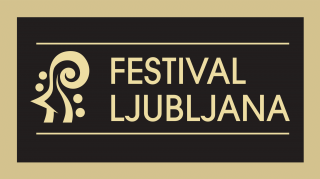Jonathan Tetelman is one of the most exciting upcoming stars of opera, recognised above all for the nuances of his darkly coloured tenor timbre. Having originally trained as a baritone, he was encouraged by a teacher to make the transition to tenor. Before finding his “true voice” as a tenor, he took a three-year break from musical training and worked as a DJ in a Manhattan nightclub. He has rapidly became one of the most sought-after lyric tenors of his generation, particularly in demand for his roles in the operas of Giacomo Puccini. This season he will make his Metropolitan Opera debut as Ruggero in La Rondine and as Pinkerton in Madama Butterfly.
Tetelman returns to Ljubljana this year having made his first appearance in Slovenia at the 69th Ljubljana Festival with Elīna Garanča and a second appearance last year at an evening of opera arias with Ludovic Tézier. This year he comes directly from New York to the stage of the Ljubljana Festival, where on 26 June he will appear as Mario Cavaradossi in Puccini’s Tosca. “It’s always nicest in the context of an opera, because instead of simply presenting a part of the whole you get to experience the full development of the character, along with the composer,” says Tetelman. The other main roles will be sung by the Slovene soprano Rebeka Lokar and the Serbian baritone Željko Lučić. The Slovene National Theatre Maribor production of the opera is directed by Pier Francesco Maestrini.
Deutsche Grammophon released Tetelman’s debut album Arias in 2022. His second studio album, released last autumn, consists of a selection of Puccini arias and has garnered extremely positive reviews. BBC Music Magazine called the disc “quite simply a sensation”, while the UK’s Gramophone magazine dubbed Tetelman “the most exciting tenor discovery” since Jonas Kaufmann. The New Yorker, meanwhile, compared him to the late great Alfred Kraus. “Puccini is my obsession,” says the Chilean-born tenor of his interpretations of Puccini’s works. “I listen to him, study him and enjoy his music every day. A lot of my technique is actually built on his compositions. There is always something I can learn from the maestro and my mind is eternally open to him. Without Giacomo Puccini, opera would not be the same.”

